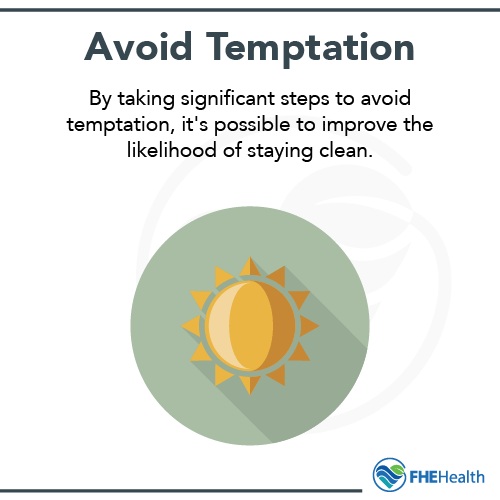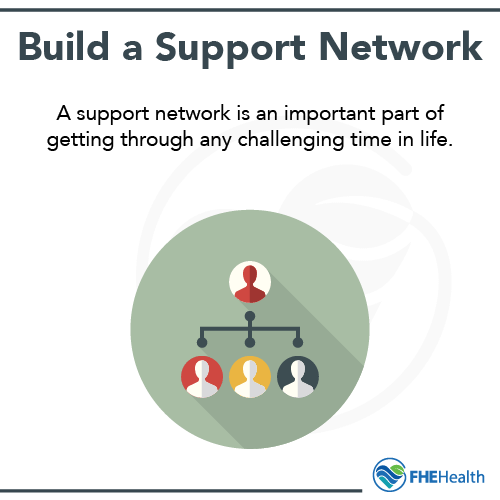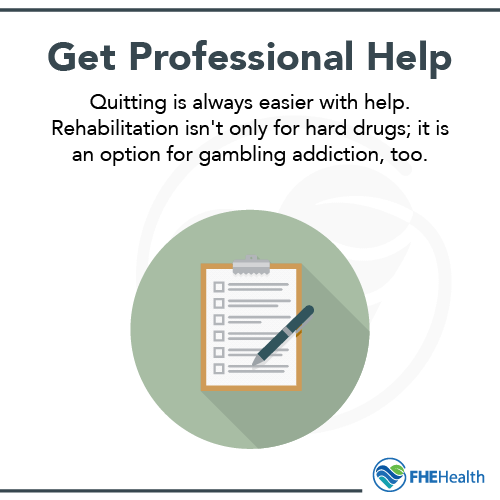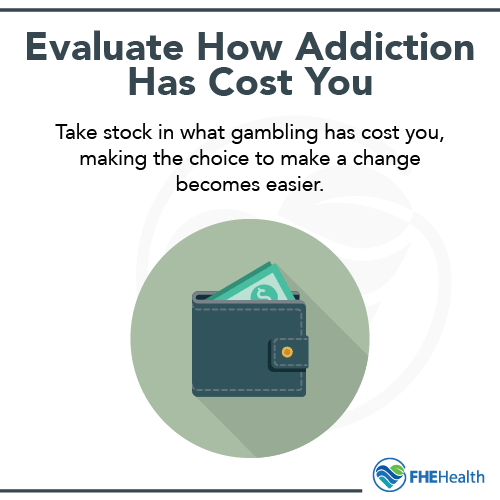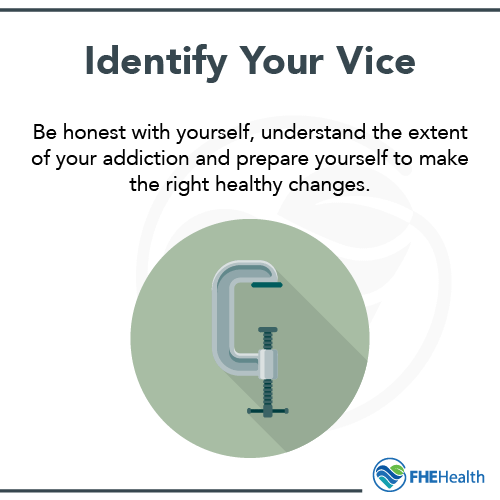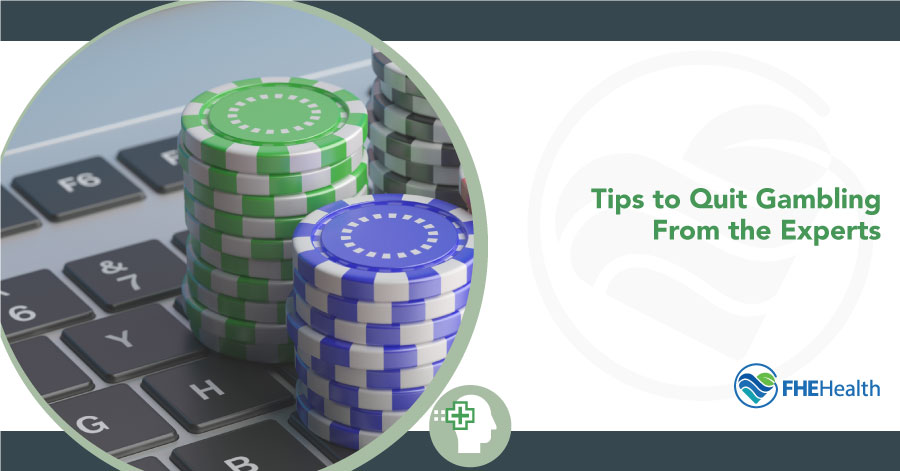
With the rise in legalized sports gambling across many states, the presence of gambling is becoming far more ubiquitous. Millions of Americans bet on sporting events, enter March Madness pools, go to racetracks and hit casinos for a night of risking it all to win big.
For most people, gambling isn’t the kind of activity that happens routinely, but for others, it can be a crippling source of addiction. The dopamine high that accompanies winning can be intoxicating, creating a cycle of abuse that can be hard to overcome.
Gambling addiction is often discounted, largely because public perception equates addiction with drugs and alcohol. However, this is a fallacy. Any enjoyable activity, from eating to playing video games, can be addictive, and that includes gambling. Affecting around 2.6% of the U.S. population, or around 10 million adults, gambling addiction is a real problem.
Signs of a Gambling Problem
Gambling can be a fun activity every once in a while. Going to the casino with friends, for example, is a common activity on vacation or for New Year’s Eve, and those with healthy budgets can find the trade-off of spending a few dollars on the allure of winning to be well worth it. However, for some people, it’s not possible to settle with gambling every once in a while; the rush of putting down money is hard to ignore. For these individuals, gambling crosses the line from activity to addiction.
For some gambling addicts, gambling is gambling. It doesn’t matter what the activity is, any opportunity to enjoy a game of chance is well worth it. For others, gambling is specific to a particular activity, like online poker, with this particular choice dominating all aspects of life.
As gambling is an activity rather than a substance, there aren’t necessarily specific visible symptoms associated with someone gambling. For example, heroin users will start to nod off after taking a large dose. As such, the biggest indicators of addiction involve behavioral or circumstantial clues, including:
- Financial problems: Usually the largest indicator of a gambling problem, financial complications are extremely common among addicts. Due to the expense required to gamble, many gambling addicts find themselves spending thousands of dollars a month at the casino, online, at the track or with a bookie. And, since no one wins all the time, this usually results in accruing a large debt, sometimes to the extent that wipes out all savings. Compulsive gamblers may empty investment accounts, utilize retirement funds or begin putting expenses on credit cards to try to fund future gambling endeavors.
- Relationship problems: Unlike drugs, in which getting high can be a relatively quick process, gambling addiction tends to take up a lot of time. Things like online poker can be pursued around the clock, taking time away from things like family obligations. Further, financial problems can cause relationship strife, straining important connections.
- Lying and sneaking around: Attempting to hide any kind of addiction requires significant sneaking around, and that is often accompanied by lying about plans. Someone living with addiction will likely make excuses for gambling, like pretending to work late in order to conceal time spent at the casino.
- Failure to keep commitments: When addiction starts to intrude seriously into life, it’s not uncommon to let commitments fall by the wayside. While skipping plans every once in a while isn’t a cause for concern, skipping all plans, and failing to keep commitments like going to a child’s concert or showing up for doctor appointments can be a cause for concern.
- Anxiety and irritability: When the urge to gamble strikes, being unable to do so can cause anxiety and irritability. Gamblers may become frustrated with family members or coworkers standing in the way of gambling and act inappropriately as a result. This can cause inappropriate outbursts of anger, creating tension at home or at work.
The dangers of addiction aren’t limited to drugs and alcohol. Any type of compulsive behavior can cause problems, ruining a healthy lifestyle. From financial problems to potentially irreparable relationship damage, getting help and overcoming problematic actions is the best way to move forward.
Five Tips to Quit Gambling
Overcoming any addiction is a challenge, and that includes gambling addiction. Use these five tips to make overcoming a gambling problem as easy as possible.1. Identify Your Vice
Gambling addiction can vary greatly from one person to another. With so many different gambling methods available, there are countless ways to get involved in a problem situation. Before seeking help, it’s important to understand the extent of your addiction. Far too often, gambling addicts believe that they can quit the most problematic aspects of their behaviors while still engaging in other activities. One example might be quitting online poker but still heading to the race track on the weekend. While this may work for a small number of people, it’s not sustainable for most gambling addicts.
Be honest with yourself, understand the extent of your addiction and prepare yourself to make the right healthy changes, not just the changes that seem the easiest to you.
2. Evaluate How Addiction Has Cost You
Most people struggling with addiction make the choice to get help after hitting rock bottom, in some way or another. This can mean losing a valued relationship, getting fired from a job, ending up homeless or any other serious consequence of gambling.
However, it’s possible to make the choice to get help before the bottom falls out. By taking stock of what gambling has cost you, even if you have not experienced any serious or significant issues, making the choice to make a change becomes easier.
To truly determine the role gambling has played in your life, ask yourself the following questions:
- How much money have I lost gambling?
- What commitments have I missed?
- Who have I let down due to my habits?
- What relationships have changed?
- How has job performance been affected?
- What lifestyle changes have occurred?
3. Get Professional Help
Quitting is always easier with guidance. Rehabilitation isn’t only for hard drugs; rehabilitation is an option for gambling addiction, too. Some gambling addicts believe that since there is no true detox process – after all, there aren’t any physical changes to the body when gambling as there are with the use of most substances – and that professional help isn’t necessary, but committing to quitting means covering all bases. The rush of endorphins that can occur when gambling is intoxicating, and leaving this feeling behind takes time, commitment and dedication that can require significant intervention.
While medical oversight may not be necessary for those recovering from gambling, counseling from addiction medicine experts can be extremely valuable. Individual and group therapy can help identify the root of issues, address coping techniques and delve into the dangers of ongoing addiction.
4. Build a Support Network
A support network is an important part of getting through any challenging time in life. With someone to talk to when you’re at your lowest points, it’s easier to find the strength and resolution to take steps to better your life.
A good support system includes a combination of friends, family and others in recovery who understand what you are going through. Having someone to call who can provide love and guidance, or someone who has been in your shoes, can be an important part of standing strong against addiction. This is why it’s often recommended to stay connected to the recovery community. By attending aftercare programming or joining 12-step groups in your area after treatment, you’ll have an ongoing reminder of the importance of staying strong.
5. Avoid Temptation
Staying strong during recovery is never easy, but putting yourself in situations that can lead to increased cravings and urges to gamble only makes a challenging situation harder. By taking significant steps to avoid temptation, it’s possible to improve the likelihood of staying clean.
This can mean any number of steps but often involves phasing out friends from gambling events, avoiding places where gambling is common and creating new hobbies that can take up time previously devoted to gambling. Leaving behind relationships or favorite places likely won’t be enjoyable, but it’s an essential part of making it through to the other side.
Help Is Here
If you or someone you love is facing a gambling problem, getting help is an imperative part of overcoming addiction. At FHE Health, our comprehensive treatment resources can assist those with an addiction to gambling. With a full spectrum of rehabilitation options, from residential to outpatient programming, it’s possible to get the help you need to create a healthier approach to living.
